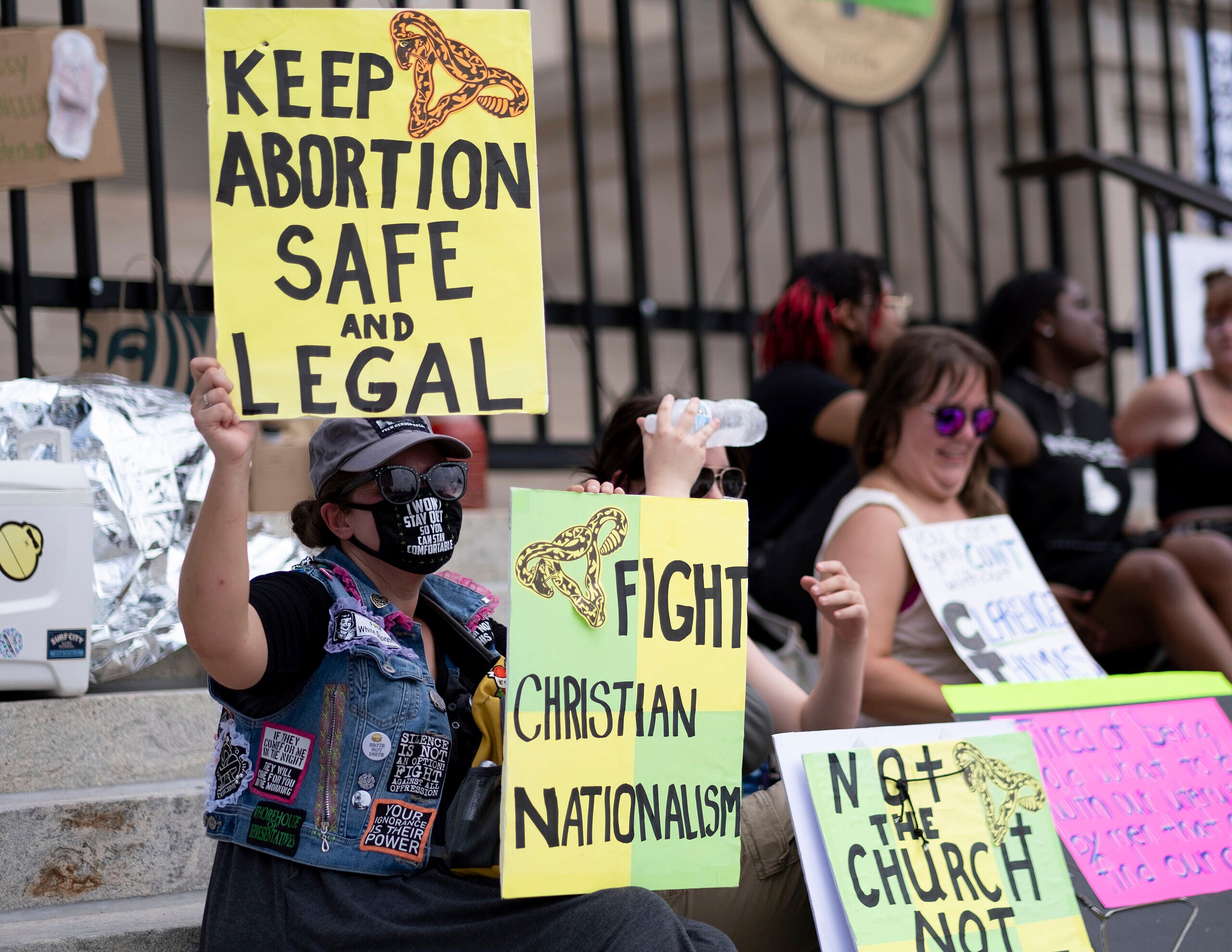Conservative lawmakers in Wisconsin are aiming to enact a stricter anti-abortion law that experts warn will incapacitate Black and other marginalized communities.
Jon McCray Jones, policy analyst at the American Civil Liberties Union (ACLU) of Wisconsin, told theGrio that it is a “human right” for women to have access to abortion care.

“Politicians need to stay out of the uteruses of Wisconsinites,” said Jones.
Analiese Eicher, director of communications with Planned Parenthood Advocates of Wisconsin, told theGrio that Republicans in Wisconsin “have been looking for every opportunity to ban abortion in our state.”
“This is just their latest attempt to ban abortion and restrict reproductive healthcare,” she said.
Last week, the Wisconsin State Assembly — which is controlled by state Republicans — approved 2023 Assembly Bill 975, a measure that would bar a woman or pregnant person from getting an abortion at 14 weeks.
Jones of the ACLU said the bill would further exacerbate the challenges many women in marginalized communities are currently facing.
“1 in 5 patients are now traveling out of state for abortion care,” while some lack the resources to do so, he explained.
Jones also said Wisconsin is beginning to experience “healthcare deserts” because “many young people who are graduating from residency are opting to go into states that have linear abortion laws.”

Eicher of Planned Parenthood Advocates of Wisconsin said that, currently, marginalized communities are facing obstacles in the state when it comes to accessing both general and reproductive health care.
She added that if this bill were to take effect, it would “further jeopardize the health and well-being of Black and brown folks in Wisconsin.”
For the controversial anti-abortion bill to pass, the Wisconsin State Senate has to advance it. If approved, voters would have an opportunity to weigh in on whether the ban should be enforced when they cast their ballots in the primary election on April 2.
If residents vote in favor of the ban, it would go into effect the day after election results are certified.
Elisabeth Smith, director of state policy and advocacy at the Center for Reproductive Rights, told theGrio that abortion bans are harmful and are the result of “racism and centuries of structural inequality.”
She added that abortion bans “disproportionately target BIPOC [Black, Indigenous, and people of color] who are systematically denied access to quality and accessible reproductive healthcare.”

After the Wisconsin State Assembly approved the bill, Democratic Governor Tony Evers pledged to veto the legislation if the state’s Senate were to pass it. During his State of the State address last week, Evers blasted Republicans for attempting to strip women of their reproductive rights.
“Wisconsinites have been incredibly clear…Republicans’ last candidate for governor wanted to take those same freedoms and more away,” he said. “You might notice he’s not here delivering the State of the State address tonight.”
Eicher said that even if the governor were to veto the bill, this would “certainly not be” Republicans’ final attempt to ban abortion in the state.
Currently, the state has one of the strictest abortion bans in place, which prohibits a doctor from performing an abortion on a pregnant woman after the 20-week mark, except for in the case of incest, rape, or a medical emergency.
The anti-abortion law was enacted following the U.S. Supreme Court’s overturning of Roe v. Wade in 2022.
Recommended Stories
Never miss a beat: Get our daily stories straight to your inbox with theGrio’s newsletter.










